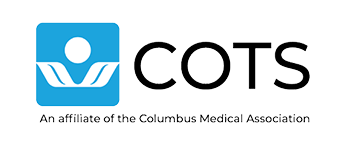
Dear COTS Valued Partners,
CMA’s affiliate, COTS, needs your help! President Trump’s proposed federal budget eliminates funding for the Hospital Preparedness Program (HPP), the primary source of funding for health care preparedness and response. COTS coordinates emergency preparedness and response for 36 of Ohio's 88 counties for the Ohio Department of Health, which administers the HPP in Ohio. The complete elimination of this program is an existential threat to the safety of all Ohioans. In addition, the proposed federal budget significantly decreases funding for public health coordination and emergency management. See COTS' impact here.
COTS is taking action by creating awareness with our Board of Trustees, stakeholders, and committee members, and developing an advocacy plan.
You can help! Please email or call one or more of these Representatives who represent districts in COTS’ service area. If you have a personal relationship with any of these Members of Congress or others, we welcome your direct advocacy to them, as well.
- Bob Latta – House District 5; Covered by Region 4 | Phone: (202) 225-6405
- Troy Balderson – House District 12; COTS Regions 4, 7, and 8 | Phone: (202) 225-5355 | Email: Rep.Balderson@mail.house.gov
- Michael Rulli – House District 6; COTS Region 8 | Phone: (202) 225-5705 | Email: michael.rulli@mail.house.gov
- David Taylor – House District 2; COTS Regions 4, 7 | Phone: (202) 225-3164
- Joyce Beatty –House District 3; COTS Region 4 | Phone: (202) 225-4324 | Email: joyce.beatty@mail.house.gov
- Jim Jordan – House District 4; COTS Region 4 | Phone: (202) 225-2676
- *Mike Carey – House District 15; COTS Region 4 | Phone: (202) 225-2015
*Congressman Carey is also a member of the House Budget Committee, so your advocacy with him will be particularly effective.
The message is simple:
“Congressman/woman, the President’s budget proposes elimination of the Hospital Preparedness Program. The House Energy & Commerce Committee’s marked up reconciliation bill does NOT implement those cuts. Please keep funding for the HPP at current levels. Defunding emergency preparedness programs will not only result in lost lives but significant economic costs, including higher response and recovery expenses, overwhelmed hospitals, and lost productivity. These decisions will place a severe financial burden on our healthcare system, with costs extending well beyond those associated with an immediate disaster. The compounded impact of these cuts will lead to avoidable fatalities, long-term recovery costs, and inefficiencies in addressing regional crises.”
About the Hospital Preparedness Program
The Hospital Preparedness Program (HPP) Hospital Preparedness Program prepares the health care delivery system to save lives through the development of health care coalitions (HCCs) that incentivize diverse and often competitive health care organizations with differing priorities and objectives to work together. HPP is the only source of federal funding for health care delivery system readiness, intended to improve patient outcomes, minimize the need for federal and supplemental state resources during emergencies, and enable rapid recovery.
The purpose of the Regional Healthcare Coalition is to provide training and exercises, the coordination of plans, and operational support during emergency response, and to develop policies and procedures that identify responsibilities required for the successful interoperability of coalition partners: hospitals, public health, Emergency Medical Services (EMS), emergency management, and community partners during a major disaster.
The Ohio HPP activities include:
- Guidance and development of health care coalitions
- Management of the Ebola Assessment Hospital (EAH) and Ebola Coalition contracts
- Participation in the Great Lakes Healthcare Partnership with Ohio, Indiana, Wisconsin, Minnesota, Illinois, Michigan, and Chicago
- Facilitation of Burn Surge planning committee
- Management of the bed tracking (EMResource), and patient tracking (EMTrack) systems
- Facilitation and participation in healthcare planning, training and exercises
We appreciate your collective partnership. Please let me know if you have any questions.
Respectfully,
Sherri
Sherri Kovach, MS, BSN, RN, EMT
President
HIPAA Privacy/Security Officer